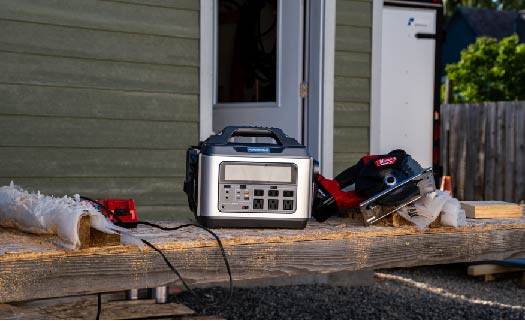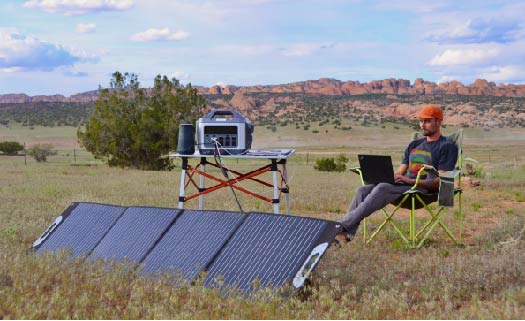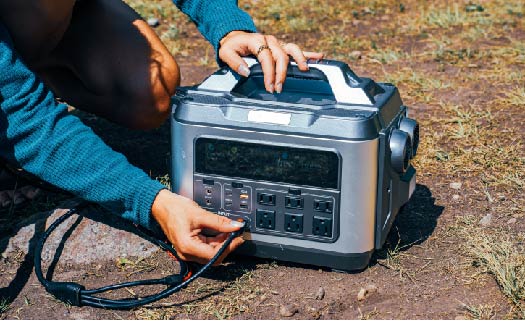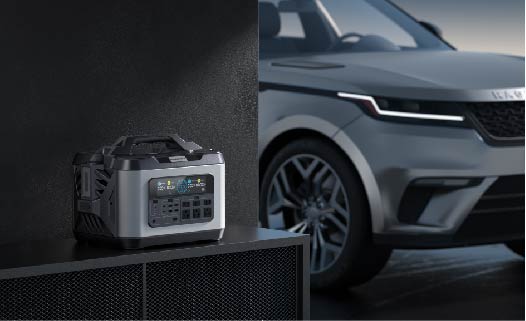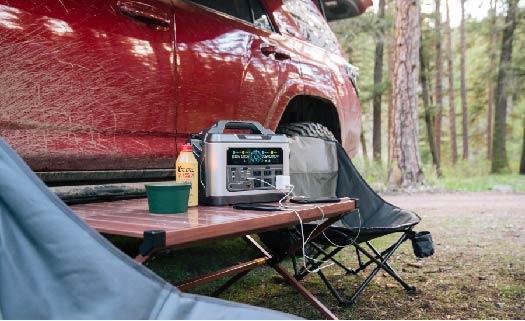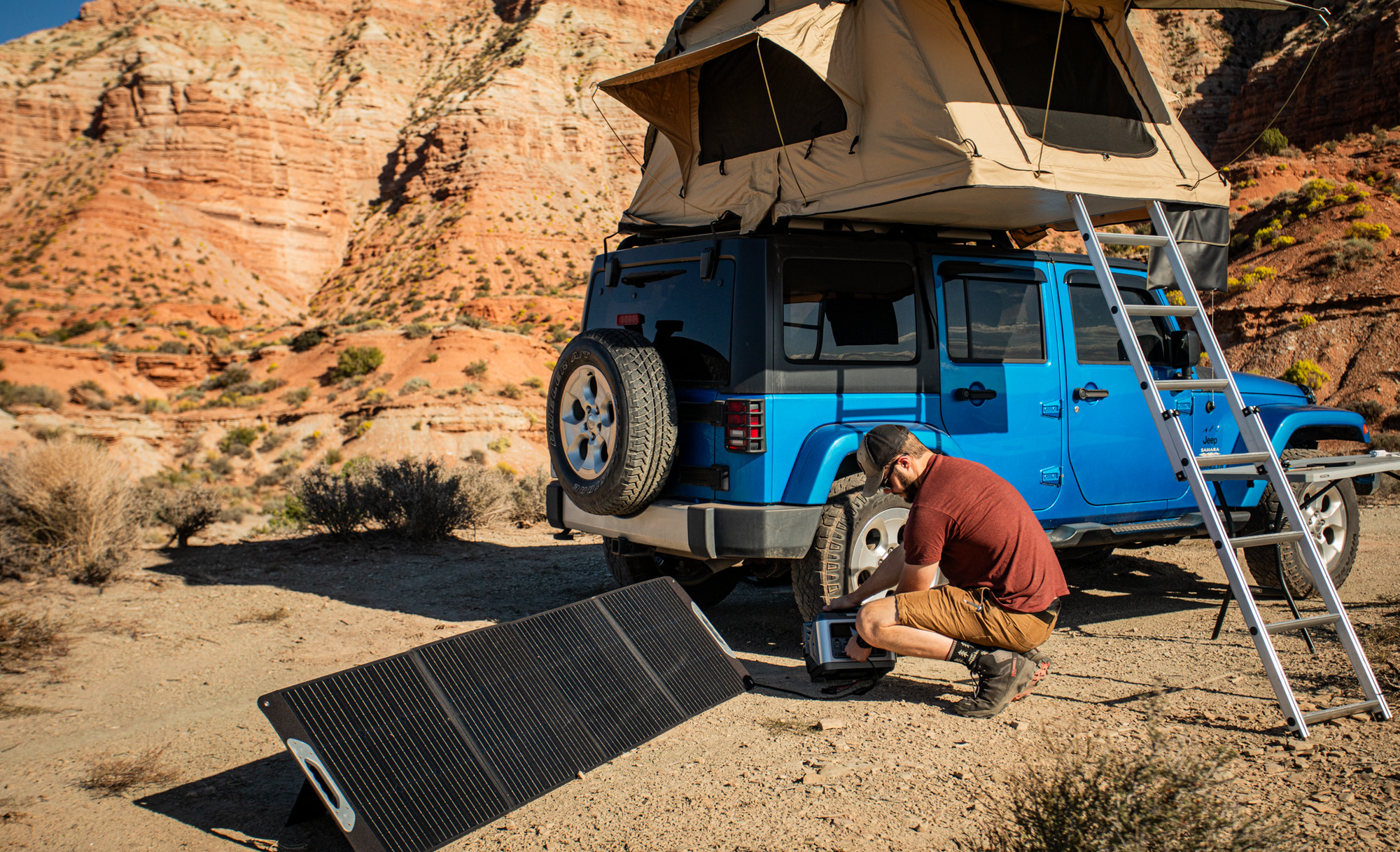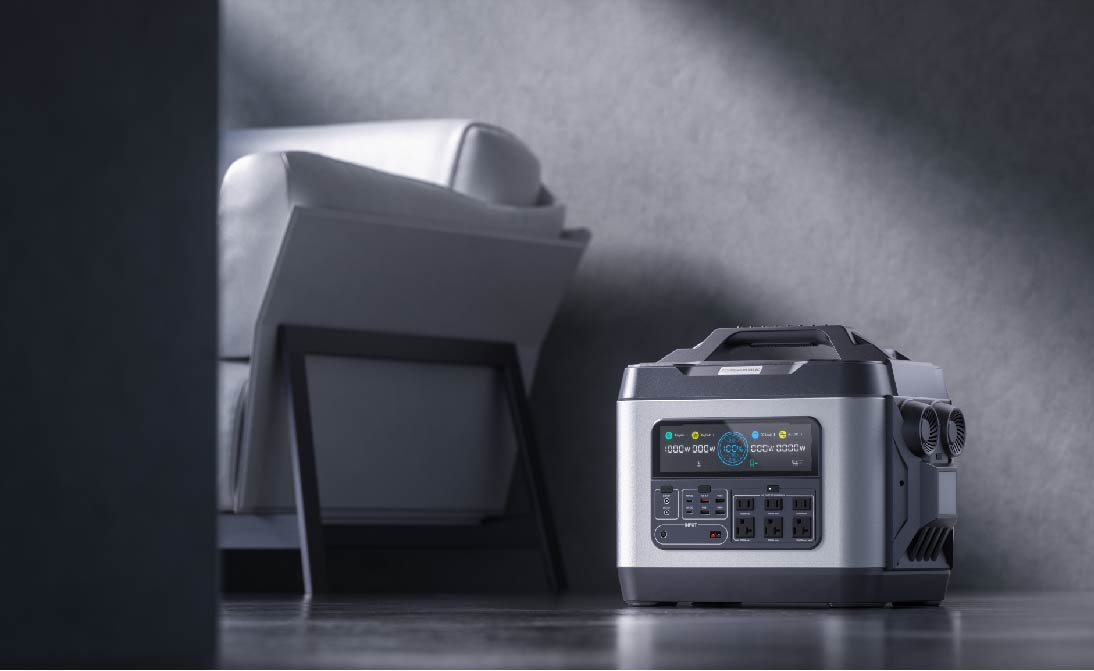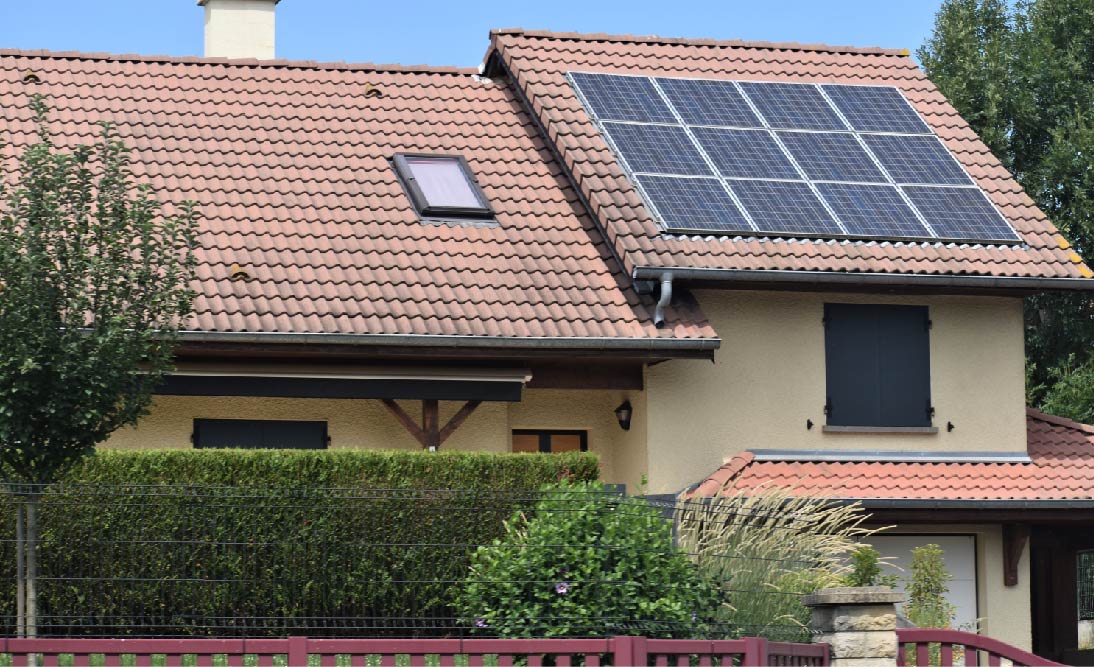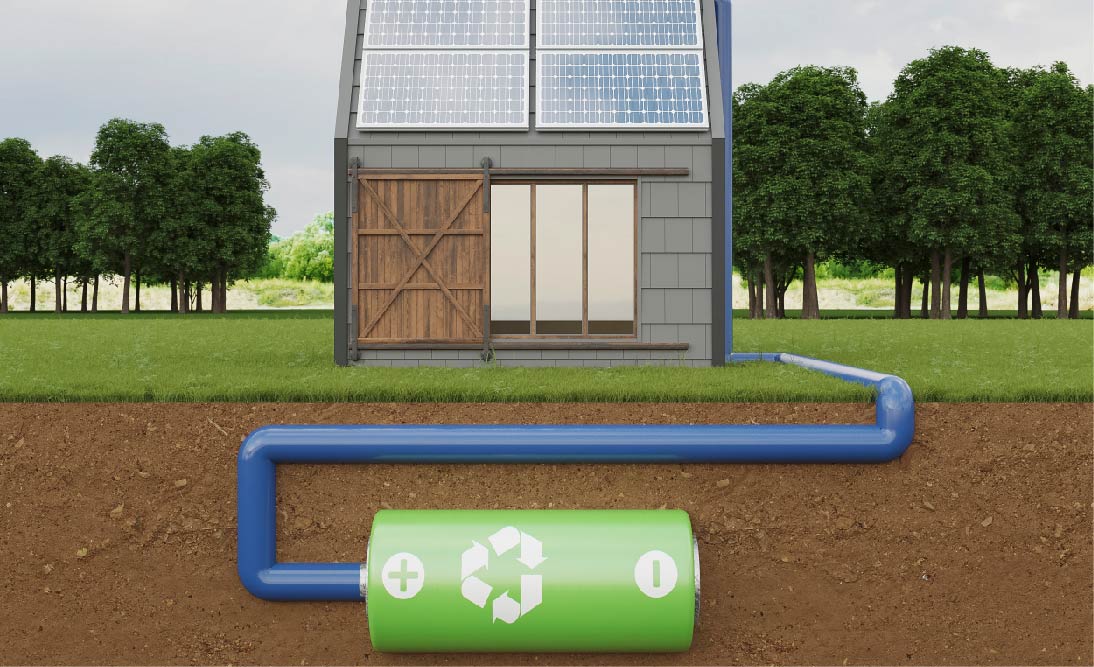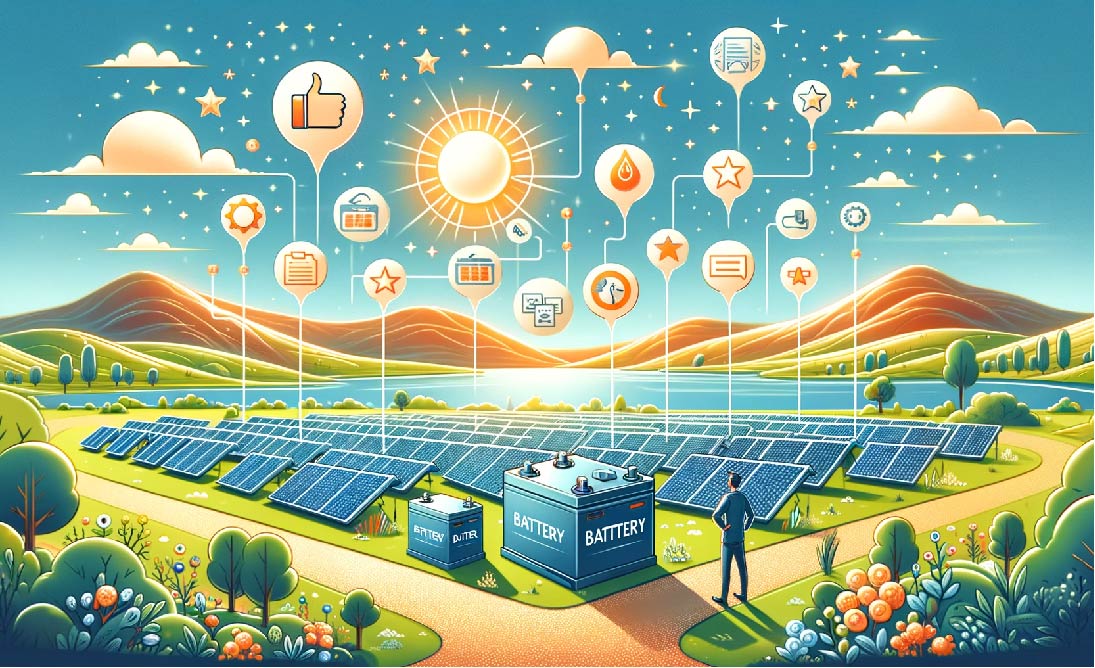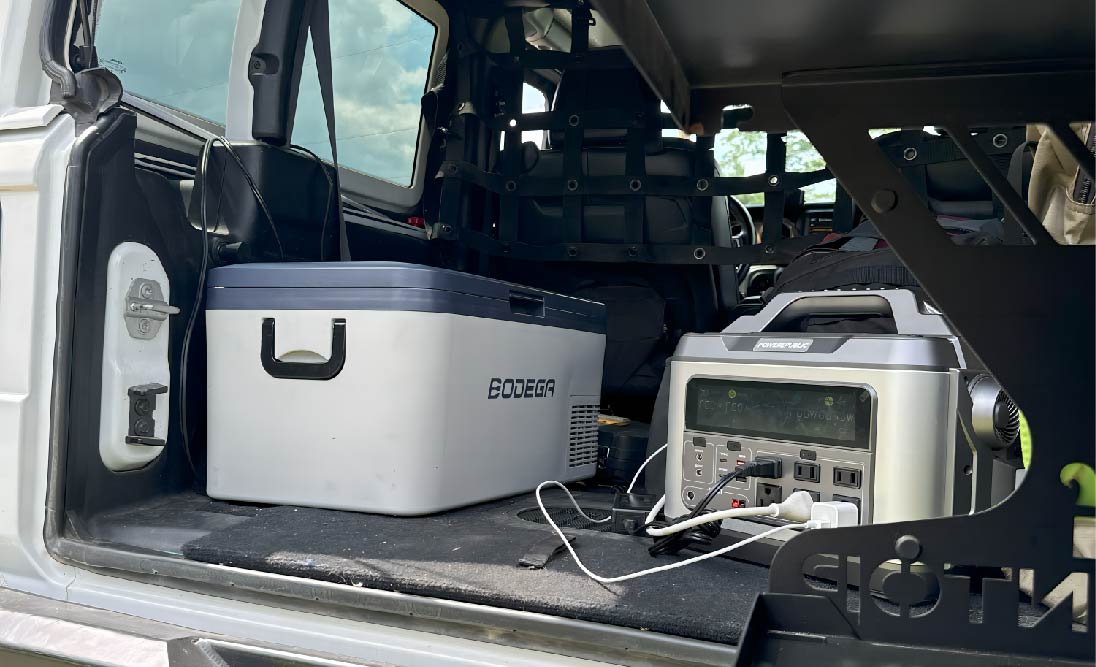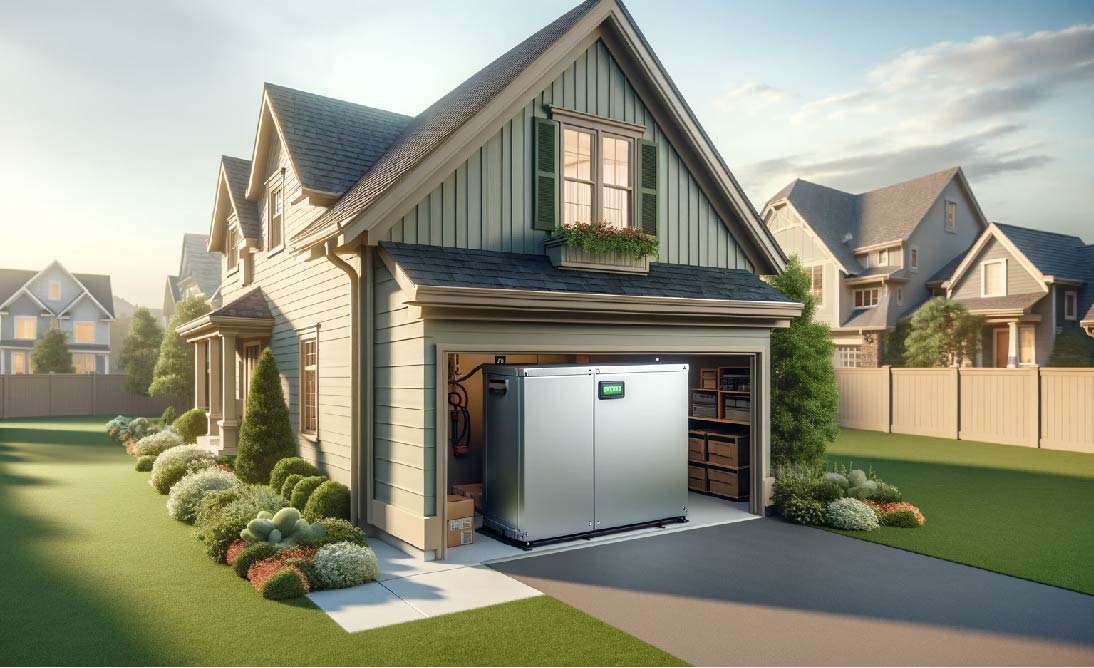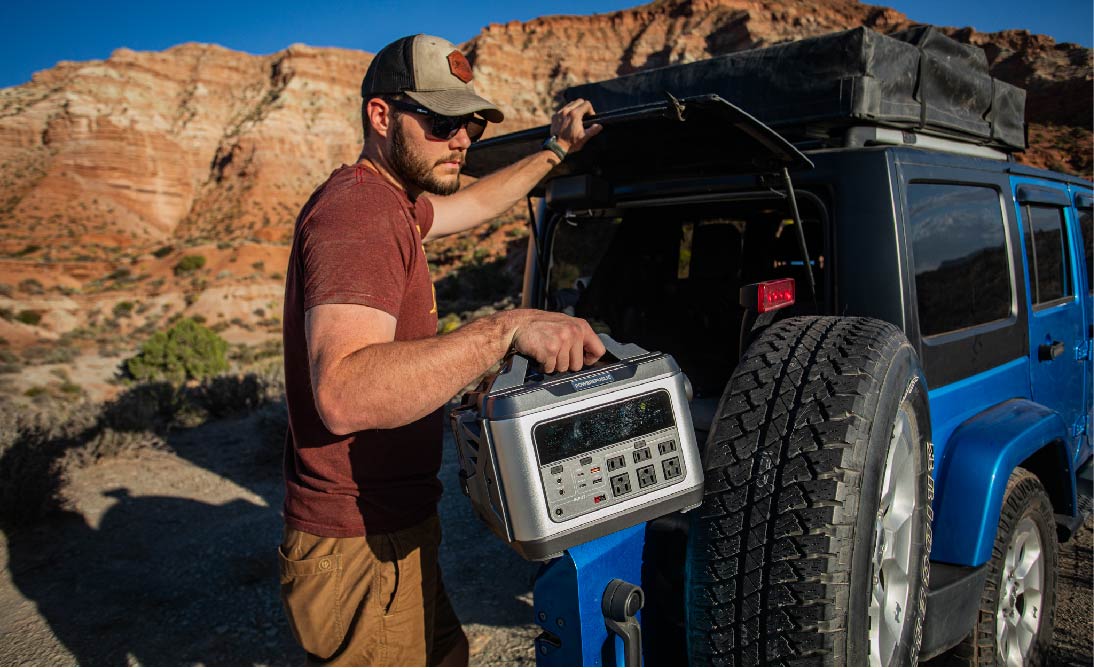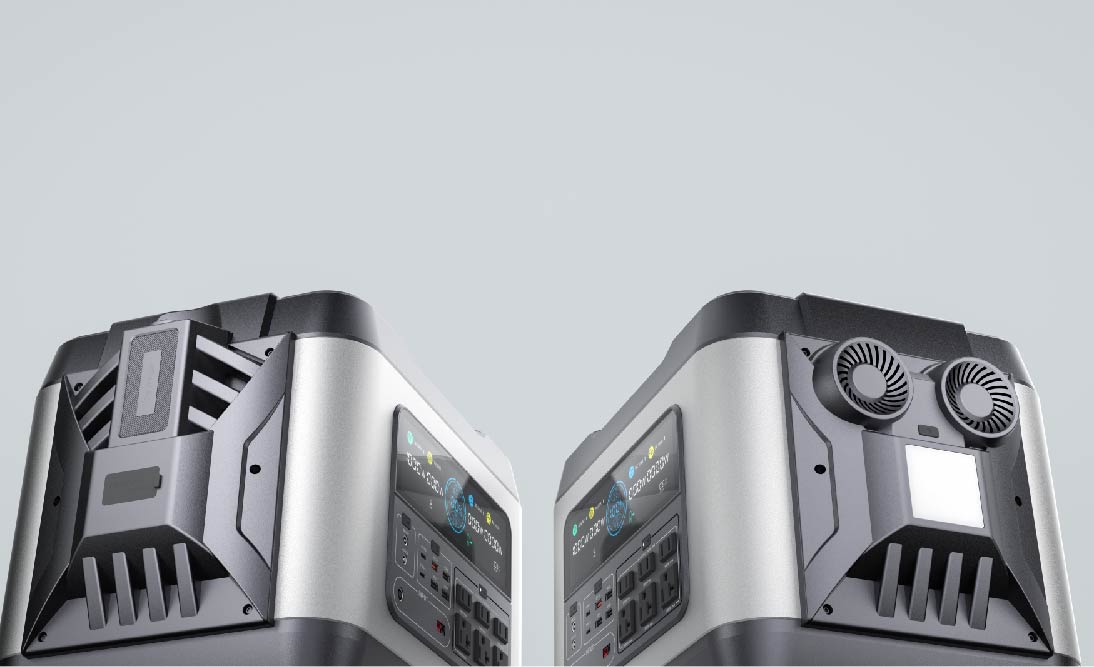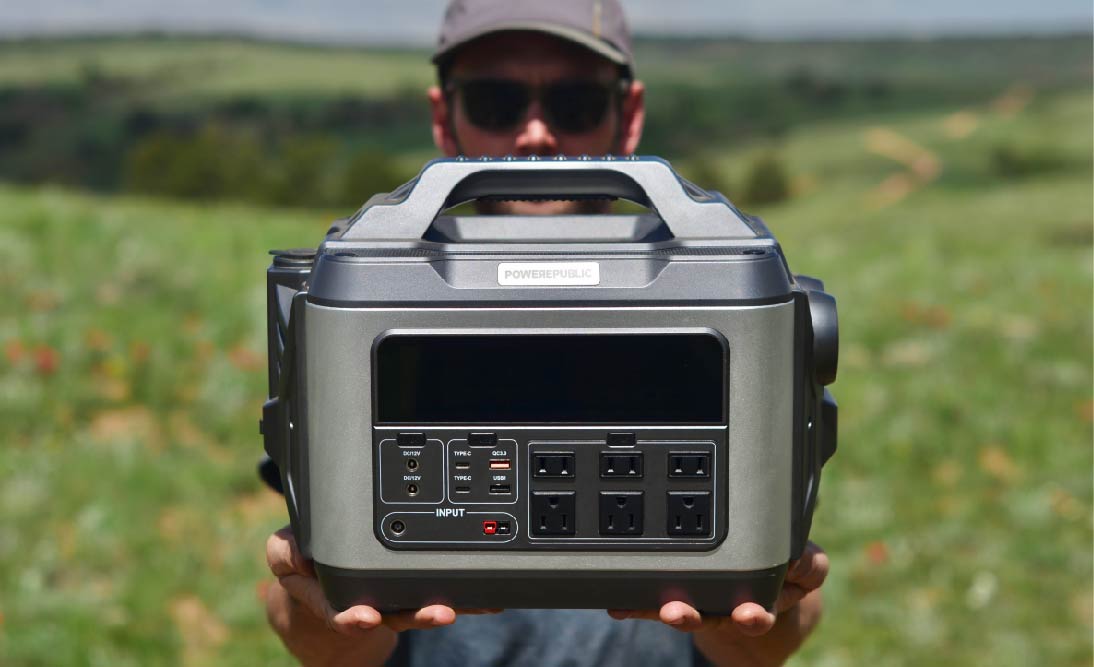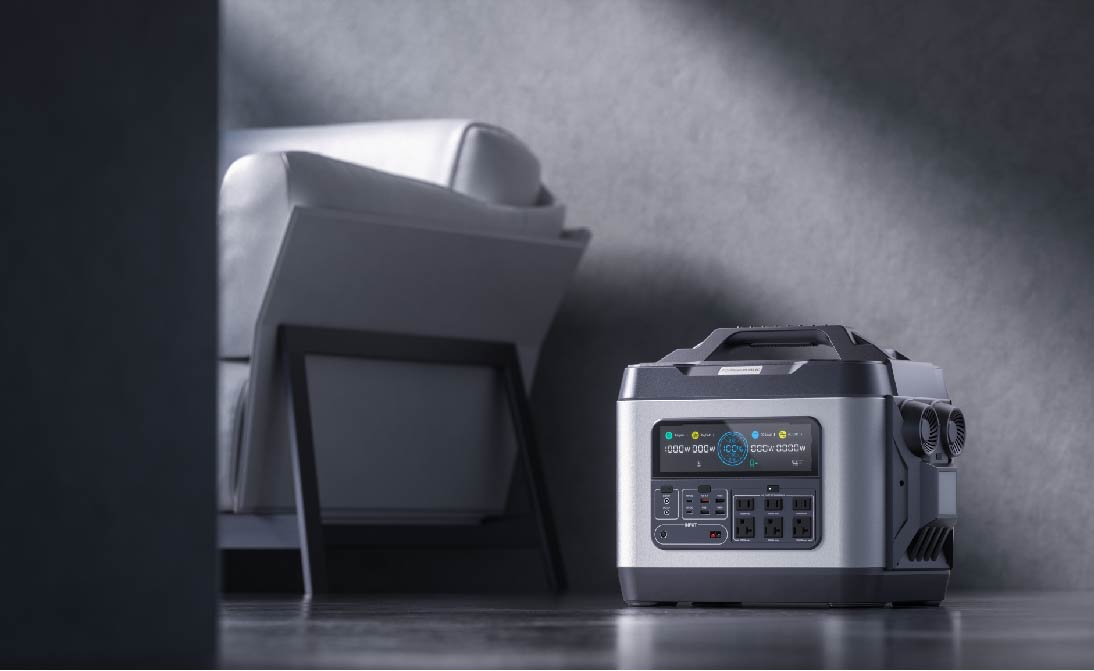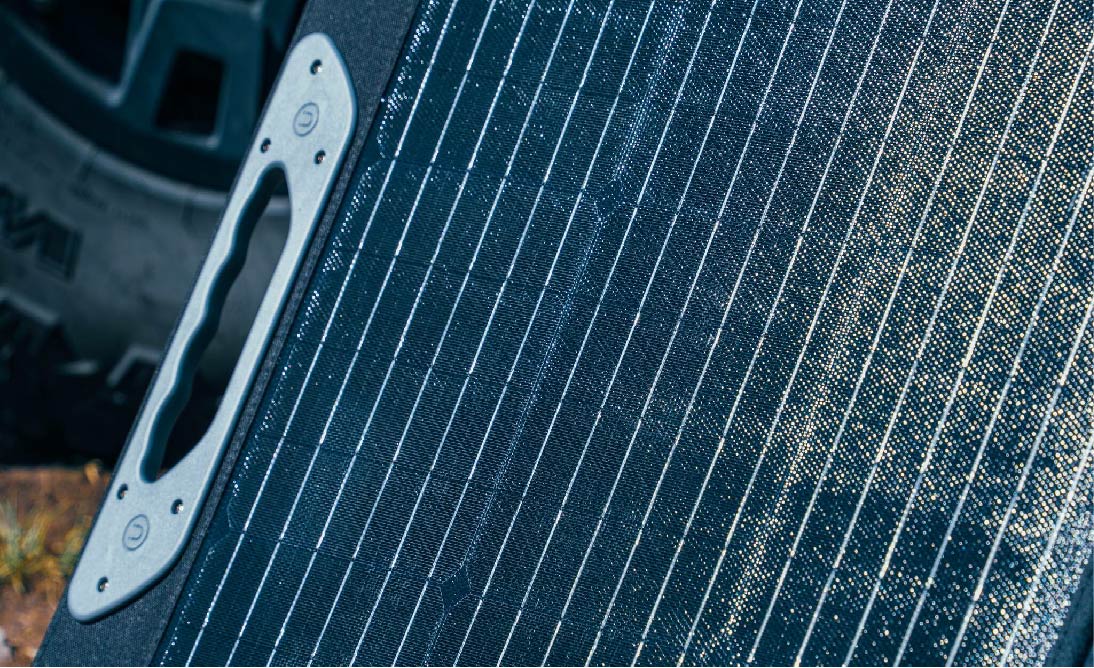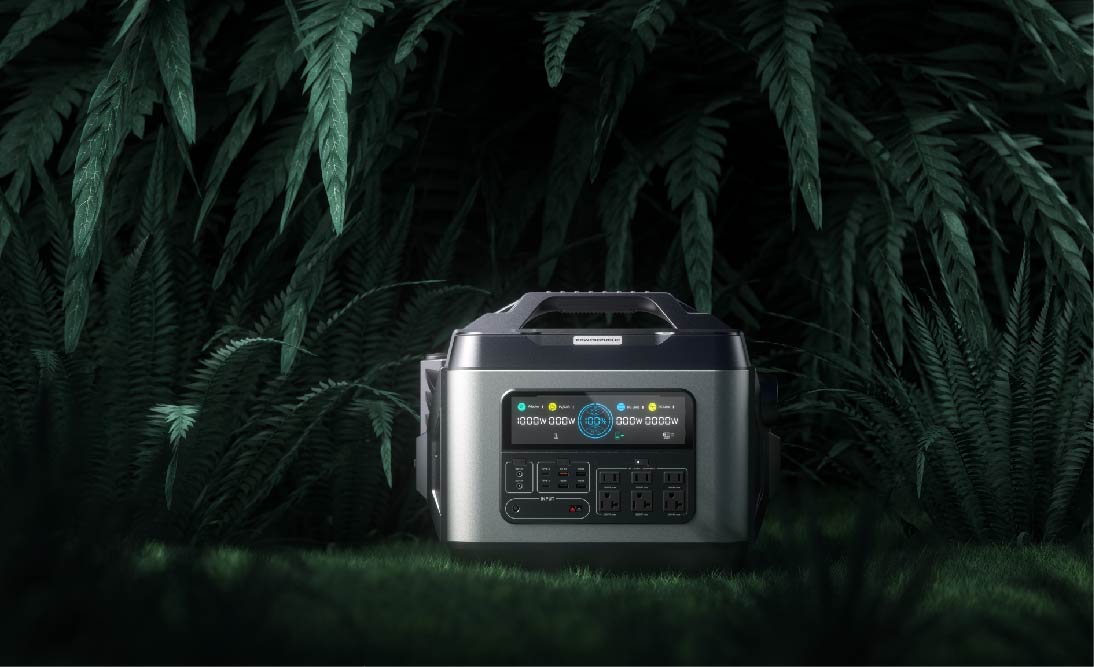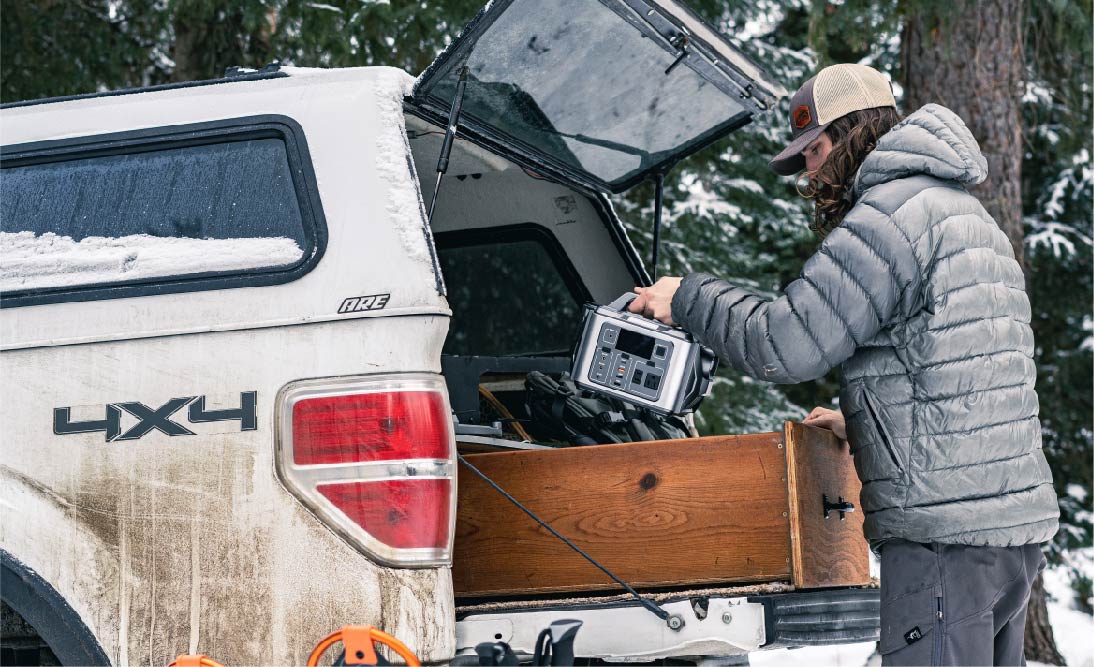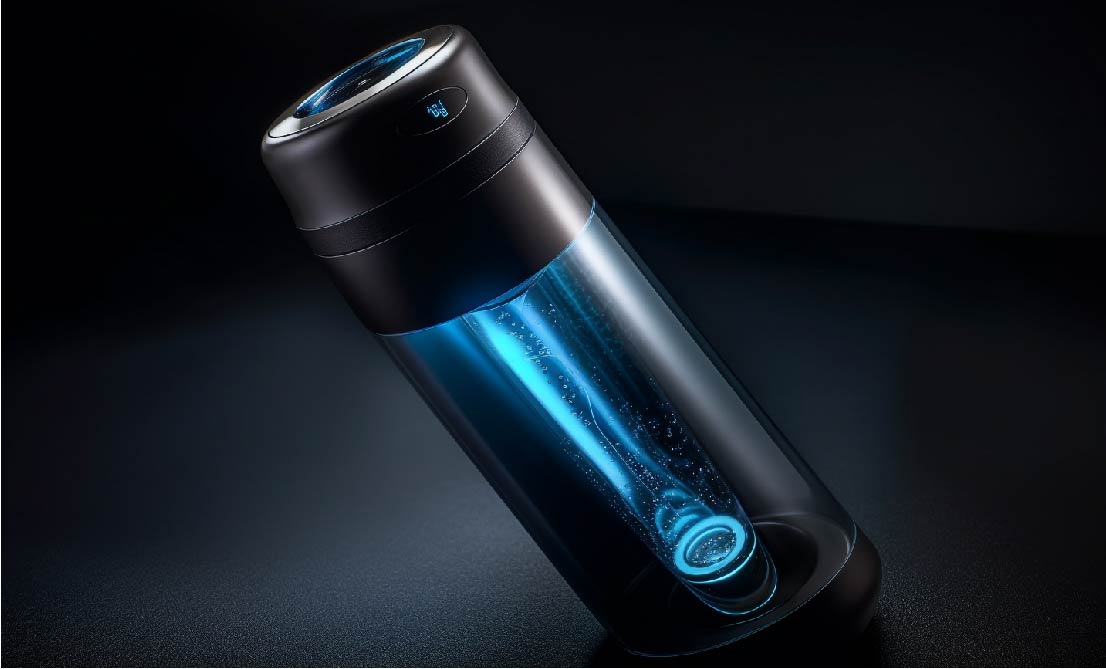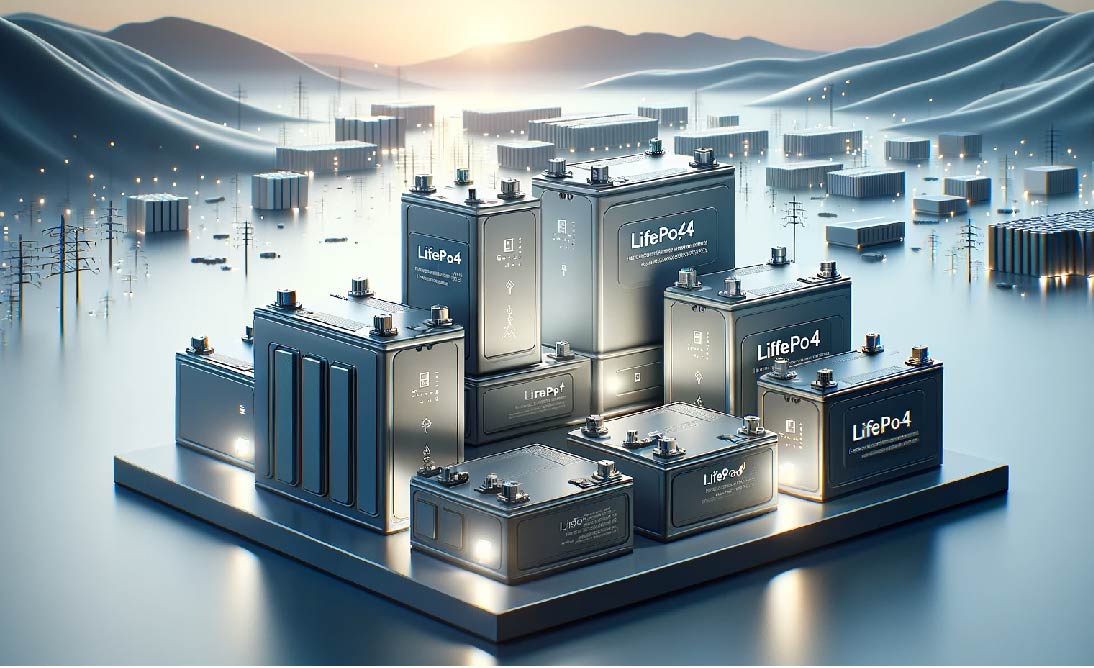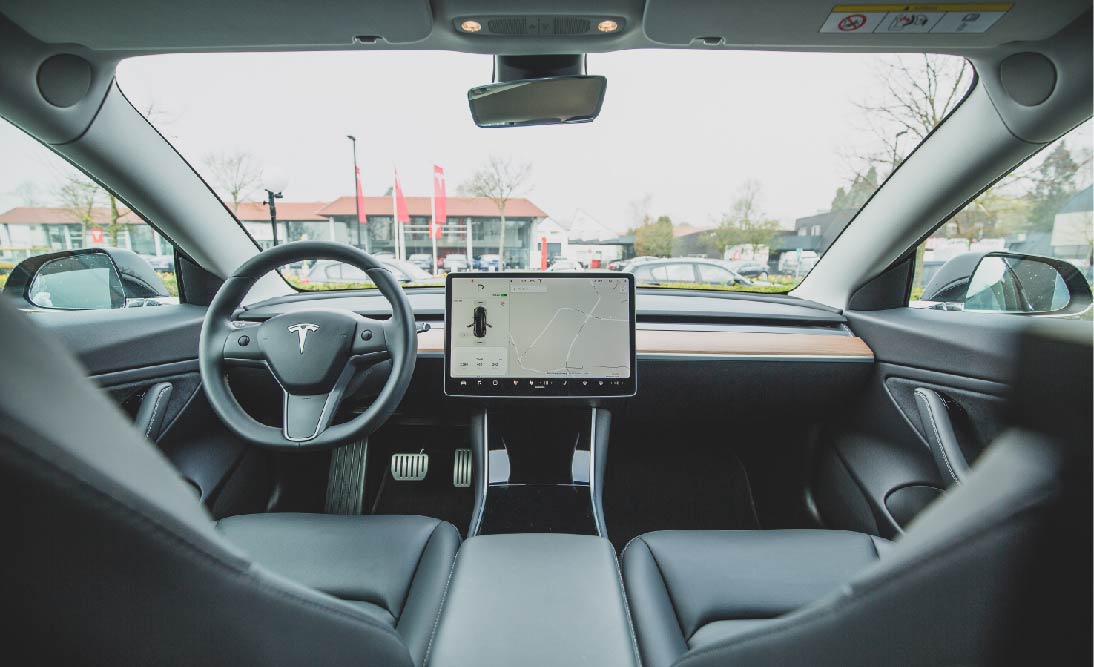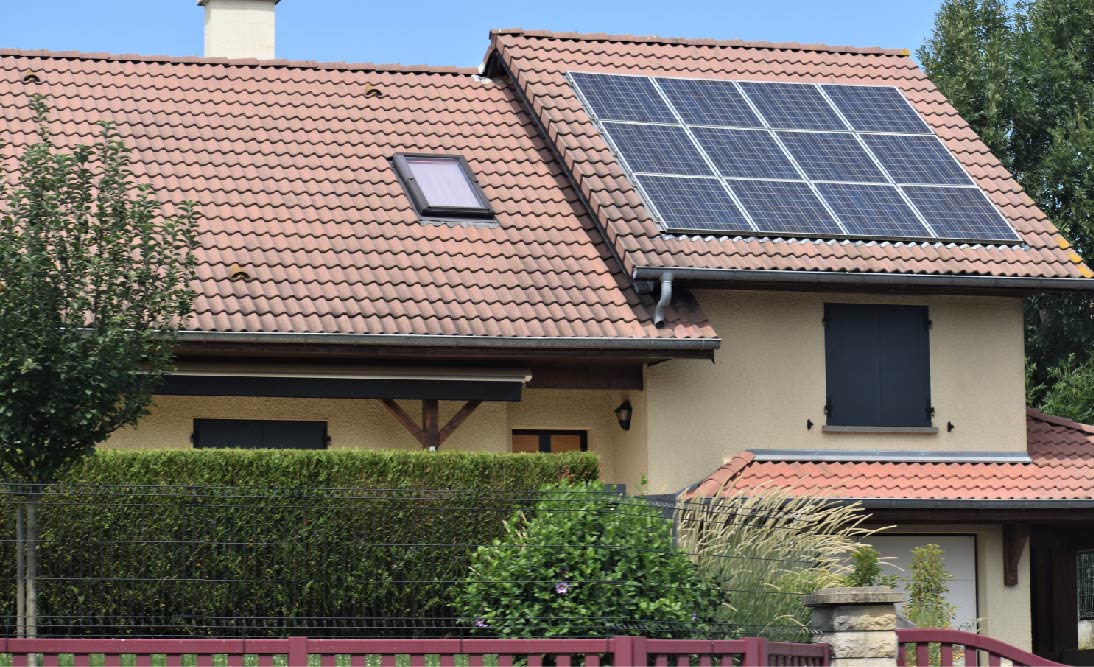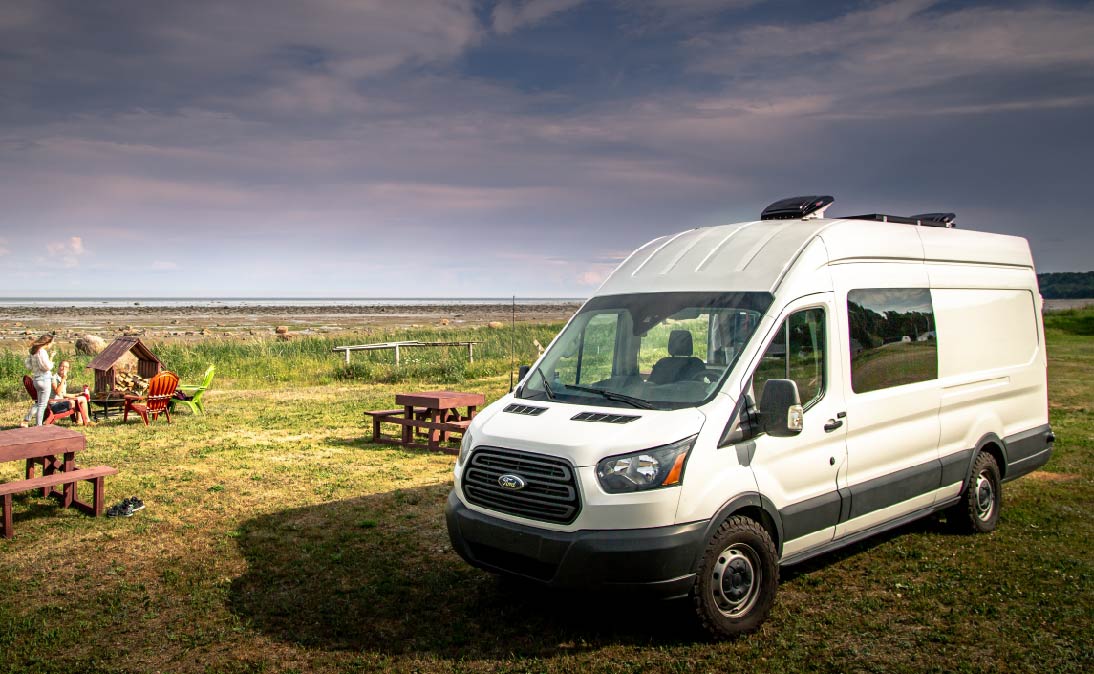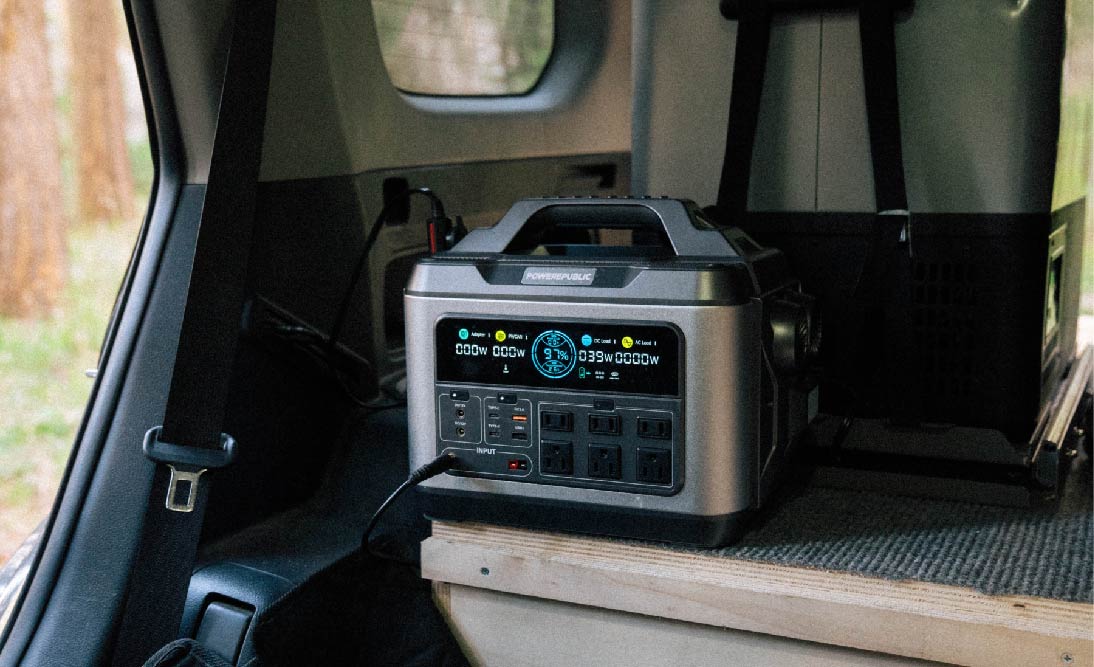Table of Contents:
Whether you're an outdoor enthusiast, living off-grid, or frequently facing power outages, having a reliable power solution is crucial to enhance your outdoor experiences and provide peace of mind for backing up all your devices and appliances. Among the various options available, LiFePO4 solar generators stand out due to their functionality, reliance on renewable energy, accessibility, and stability, making them an ideal power solution in the wild.
In this article, we will cover everything you need to know about LiFePO4 solar generators, highlighting the reasons you should consider having one. Additionally, we'll introduce POWEREPUBLIC's LiFePO4 solar generators and the T2200 and T3000 models.
What is a LiFePO4 Solar Generator?

A LiFePO4 (Lithium Iron Phosphate) solar generator is a portable power station that utilizes advanced lithium iron phosphate battery technology to store and provide electrical energy. It is a versatile and reliable off-grid power solution, particularly in scenarios where access to traditional grid power is limited or unavailable.
Here are the key components and features of a LiFePO4 solar generator:
1. Battery Technology
-
LiFePO4 Chemistry: Unlike traditional lead-acid batteries, LiFePO4 batteries are known for their superior performance, longevity, and safety. The lithium iron phosphate chemistry enhances the overall efficiency and reliability of the solar generator.
2. Solar Charging
-
Photovoltaic (PV) Panels: LiFePO4 solar generators are designed to harness solar energy using built-in or external photovoltaic panels. These panels convert sunlight into electricity, charging the LiFePO4 battery for later use.
3. Inverter
-
Pure Sine Wave Inverter: To provide clean and stable power, LiFePO4 solar generators incorporate a pure sine wave inverter. This type of inverter ensures compatibility with sensitive electronic devices like laptops, cameras, and medical equipment.
4. Ports and Outlets
-
Various Output Ports: LiFePO4 solar generators typically include a variety of output ports such as AC outlets, DC ports, USB ports, and sometimes even wireless charging capabilities. This allows users to connect and power various devices and appliances.
5. Capacity and Power Rating
-
Storage Capacity: LiFePO4 solar generators come in different sizes, offering varying storage capacities measured in watt-hours (Wh) or kilowatt-hours (kWh). The capacity determines how much energy the generator can store and deliver.
6. Portability
-
Compact Design: These generators are designed to be portable, often featuring handles or wheels for easy transportation. This makes them suitable for camping, outdoor activities, emergencies, or any situation where on-the-go power is needed.
7. Monitoring and Control
-
LCD Display or Mobile App: Many LiFePO4 solar generators come equipped with an LCD or can be monitored and controlled through a mobile app. This allows users to track battery status, input/output power, and other relevant information.
8. Durability and Longevity
-
Robust Construction: LiFePO4 solar generators are known for their durability and long lifespan. The inherent stability of lithium iron phosphate batteries contributes to the overall reliability and longevity of the generator.
A LiFePO4 solar generator combines cutting-edge battery technology with solar charging capabilities to offer a clean, reliable, and portable power source. It's an excellent solution for various applications, from camping and outdoor adventures to emergency preparedness and off-grid living.
LiFePO4 Solar Generators VS. Lithium-ion Solar Generators

LiFePO4 solar generators and lithium-ion solar generators are both types of lithium-based batteries, and while they share similarities, they also have distinct differences. When comparing LiFePO4 solar generators to general lithium-ion solar generators, several key factors come into play:
1. Chemistry
-
LiFePO4 Solar Generators: Use lithium iron phosphate chemistry. LiFePO4 batteries are known for their stability, safety, and thermal performance. They have a higher tolerance for overcharging, overheating, and short-circuiting compared to other lithium-ion variants.
-
Lithium-ion Solar Generators: Comprising a diverse category, lithium-ion solar generators span various lithium chemistries, such as lithium cobalt oxide (LiCoO2), lithium manganese oxide (LiMn2O4), and lithium nickel cobalt manganese oxide (LiNiCoMnO2). Each variant boasts distinct characteristics, exhibiting disparities in energy density, safety profiles, and lifespan.
2. Safety
-
LiFePO4 Solar Generators: Considered one of the safest lithium chemistries. LiFePO4 batteries are less prone to thermal runaway, which is a significant safety advantage. They are inherently more stable and less likely to overheat, making them suitable for a wide range of applications, including solar generators.
-
Lithium-ion Solar Generators: Safety can vary depending on the specific lithium-ion chemistry used. While advancements have been made to improve safety, some variants may still have a higher risk of thermal issues under certain conditions.
3. Lifespan
-
LiFePO4 Solar Generators: Generally have a longer cycle life compared to other lithium-ion batteries. LiFePO4 batteries can withstand a higher number of charge-discharge cycles, making them more durable over the long term.
-
Lithium-ion Solar Generators: Lifespan varies based on the specific lithium-ion chemistry. Some lithium-ion batteries may experience a decline in performance after a certain number of cycles.
4. Energy Density
-
LiFePO4 Solar Generators: Tend to have a lower energy density. This means they may be bulkier and heavier for a given energy capacity.
-
Lithium-ion Solar Generators: Can achieve higher energy densities, resulting in a more compact and lighter design for a given capacity.
5. Temperature Performance
-
LiFePO4 Solar Generators: Exhibit better performance in extreme temperatures. They are more tolerant of both high and low temperatures, making them suitable for a wider range of environments.
-
Lithium-ion Solar Generators: Temperature sensitivity can vary among different lithium-ion chemistries. Some variants may require thermal management systems to operate optimally in extreme conditions.
6. Cost
-
LiFePO4 Solar Generators: Historically, LiFePO4 batteries have been more expensive to manufacture, but prices have been decreasing as technology advances and economies of scale come into play. Low-End Models (e.g., smaller capacities): $500 - USD 1,000, Mid-Range Models (moderate capacities and features): $1,000 - USD 2,500, and High-End Models (larger capacities, advanced features): $2,500 - USD 5,000+
-
Lithium-ion Solar Generators: Costs can vary based on the specific lithium-ion chemistry used, but in general, lithium-ion batteries have become more cost-effective over time. Low-End Models: $300 - USD 800, Mid-Range Models: $800 - USD 1,500, and High-End Models: $1,500 - USD 3,000+
While both LiFePO4 and lithium-ion solar generators offer advantages, the choice between them depends on specific use cases, safety considerations, lifespan requirements, and budget constraints. LiFePO4 solar generators are often preferred for applications where safety, longevity, and temperature stability are critical, such as in solar power systems.
Pros and Cons of LiFePO4 Solar Generators?

Before delving into selecting the best LiFePO4 solar generator for your needs, it's important to take a detailed look at the benefits and drawbacks. Here's a detailed breakdown of the pros and cons of LiFePO4 (Lithium Iron Phosphate) solar generators:
Pros of LiFePO4 Solar Generators
-
Safety: LiFePO4 batteries are considered one of the safest lithium-ion chemistries. They are less prone to thermal runaway, overcharging, and short-circuiting, enhancing overall safety.
-
Long Cycle Life: LiFePO4 batteries typically have a longer cycle life compared to other lithium-ion variants. They can withstand a higher number of charge-discharge cycles, resulting in a more durable and long-lasting solar generator.
-
Stability and Reliability: LiFePO4 chemistry provides stable and consistent performance, making LiFePO4 solar generators reliable for various applications. They are less affected by issues like capacity degradation and voltage fade.
-
Temperature Performance: LiFePO4 batteries perform well in a wide range of temperatures. They have a good tolerance for both high and low temperatures without a significant impact on their performance.
-
Maintenance-Free: LiFePO4 solar generators are generally maintenance-free. They do not require frequent maintenance tasks such as watering, which is common in some lead-acid batteries.
-
Fast Charging: LiFePO4 batteries can support relatively fast charging compared to other lithium-ion chemistries. This allows for quicker recharging times, especially when using compatible charging systems.
-
Environmental Impact: LiFePO4 batteries are considered more environmentally friendly than some other lithium-ion variants. The materials used in LiFePO4 batteries are non-toxic and have a lower environmental impact.
Cons of LiFePO4 Solar Generators
-
Cost: LiFePO4 solar generators tend to be more expensive upfront compared to some other lithium-ion options. However, the decreasing costs of LiFePO4 technology may offset this over time.
-
Energy Density: LiFePO4 batteries have a lower energy density compared to certain lithium-ion chemistries. This means for a given capacity, LiFePO4 batteries may be bulkier and heavier.
-
Size and Weight: LiFePO4 solar generators may be larger and heavier for a given energy capacity, making them less suitable for applications where compactness and lightness are critical.
-
Voltage: LiFePO4 batteries typically have a lower nominal voltage than other lithium-ion variants. While this doesn't necessarily impact performance, it might require adjustments in system design for specific applications.
-
Market Availability: While LiFePO4 technology is becoming more widespread, the variety and availability of LiFePO4 solar generators might not be as extensive as other lithium-ion options in some regions.
-
Complexity of Battery Management: LiFePO4 batteries may require a more sophisticated battery management system (BMS) to ensure proper charging and discharging, which can add to the overall cost and complexity of the solar generator.
LiFePO4 solar generators offer numerous advantages regarding safety, cycle life, stability, and environmental impact. However, potential drawbacks include a higher upfront cost, lower energy density, and larger size and weight. The choice depends on the specific requirements and priorities of the user.
How To Choose The Best LifePO4 Solar Generator?

Choosing the best LiFePO4 solar generator is not easy. It's important to keep in mind that the 'best' does not necessarily mean the most expensive; instead, it should be determined by whether it can cover all your power needs and fits within your budget. Here's a step-by-step guide:
1. Determine Your Power Needs
-
Example: Calculate the total wattage of the devices you plan to power. For instance, if you need to run a laptop (50W), LED lights (20W), and a small refrigerator (100W), your total power requirement would be 170 watts.
-
Calculation: Total Power (Watts) = Laptop Power + LED Lights Power + Refrigerator Power
2. Assess Battery Capacity (Wh or Ah)
-
Example: If you require 170 watts for 8 hours a day, your daily energy consumption would be 170W * 8h = 1360Wh (watt-hours). To ensure some buffer for cloudy days or unexpected usage, you might want to double this figure, resulting in 2720Wh.
-
Calculation: Daily Energy Consumption (Wh) = Total Power * Hours of Use per Day
3. Consider Solar Panel Output
-
Example: If your LiFePO4 solar generator is expected to receive 6 hours of sunlight per day, the minimum solar panel output required would be 2720Wh / 6h = 453.33W. To account for charging losses and efficiency, it's wise to select a solar panel with a slightly higher output, say, 500W.
-
Calculation: Minimum Solar Panel Output (Watts) = Daily Energy Consumption / Hours of Sunlight per Day
4. Evaluate Battery Cycle Life
-
Example: If a LiFePO4 solar generator has a cycle life of 2000 cycles, and you plan to discharge and recharge it once daily, the battery would last approximately 2000 days, or around 5.5 years.
-
Calculation: Battery Lifespan (Years) = Battery Cycle Life / Daily Discharge and Recharge Cycles
5. Consider Inverter Capacity
-
Example: If your devices collectively require 500W, ensure the LiFePO4 solar generator has an inverter with a capacity higher than this to handle peak loads. A 600W inverter would provide a buffer and prevent overloading.
-
Calculation: Inverter Capacity (Watts) = Total Power Requirement + Buffer
6. Evaluate Weight and Portability
-
Example: If you plan to use the solar generator for camping or other on-the-go activities, consider its weight. A lightweight option, say around 20 lbs, would be more portable.
-
Consideration: Weight and Portability
7. Review Additional Features
-
Example: If you require multiple output options (AC, DC, USB), wireless charging, or a user-friendly interface, check if the LiFePO4 solar generator offers these features.
-
Consideration: Additional Features and Functionality
8. Set a Budget
-
Example: If your budget is $1000, look for LiFePO4 solar generators within this price range. Compare the features and specifications of models within your budget to find the best value.
-
Consideration: Budget Constraints
9. Check Warranty and Customer Support
-
Example: A LiFePO4 solar generator with a longer warranty period and reputable customer support may provide more peace of mind. Consider the warranty duration and the responsiveness of customer support services.
-
Consideration: Warranty and Customer Support
By systematically evaluating these factors, you can make an informed decision when choosing the best LiFePO4 solar generator that aligns with your power needs, budget, and specific use cases.
POWEREPUBLIC LiFePO4 Solar Generators

POWEREPUBLIC offers reliable, long-lasting, and durable LiFePO4 solar generators for outdoor activities, off-grid living, and power outages. Two of the most amazing options in our lineup are the T2200 and T3000 models.
Both of them are equipped with LiFePO4 batteries designed for 3000+ cycles to 80% of their original capacity. This means you can charge and recharge them at least 3000 times before the battery capacity decays to 80% of the original, ensuring exceptional durability.
Our T2200 and T3000 portable power stations can be paired with 200W portable solar panels to create the T2200+PV200 solar generator kit and T3000+PV200 solar generator kit. Harness the energy of the sun wherever you go, as long as there's sunlight available. The adjustable kickstands on our 200W portable solar panels maximize absorption (23% efficiency), and the ETFE coating on the surface makes them weather-resistant.
Moreover, the T2200 (2200W/2240Wh, surge 4500W) can power almost 90% of devices and home appliances, while the T3000 (3000W/3200Wh, surge 6000W) can power almost 95% of devices and home appliances. Both models are excellent LiFePO4 solar generators, suitable not only for outdoor events and off-grid living but also for power outages during extreme weather conditions. POWEREPUBLIC's T2200 and T3000 portable power stations can charge up to 15 items simultaneously, eliminating concerns about having your devices uncharged.
If you're in search of a practical, accessible, rugged-looking, and reliable LiFePO4 solar generator, consider POWEREPUBLIC's T2200 and T3000 solar generator kits as two excellent options.
Final Thoughts
In conclusion, navigating the realm of LiFePO4 solar generators requires careful consideration of your power needs, budget, and specific use cases. The comparison between LiFePO4 and lithium-ion generators sheds light on the nuanced factors influencing your decision. Understanding the pros and cons is crucial for making an informed choice, and the step-by-step guide provides a comprehensive approach to selecting the best LiFePO4 solar generator.
POWEREPUBLIC's T2200 and T3000 models stand out as exemplary options, embodying reliability, durability, and versatility. With LiFePO4 batteries designed for over 3000 cycles, these generators offer a robust and enduring power solution. The compatibility with 200W portable solar panels enhances their off-grid capabilities, while the impressive power ratings make them suitable for a wide range of devices and appliances. Whether you're venturing outdoors, embracing off-grid living, or preparing for power outages, POWEREPUBLIC's T2200 and T3000 solar generator kits emerge as practical, accessible, and dependable choices for your portable power needs.
Explore POWEREPUBLIC Solar Generator Kits.









